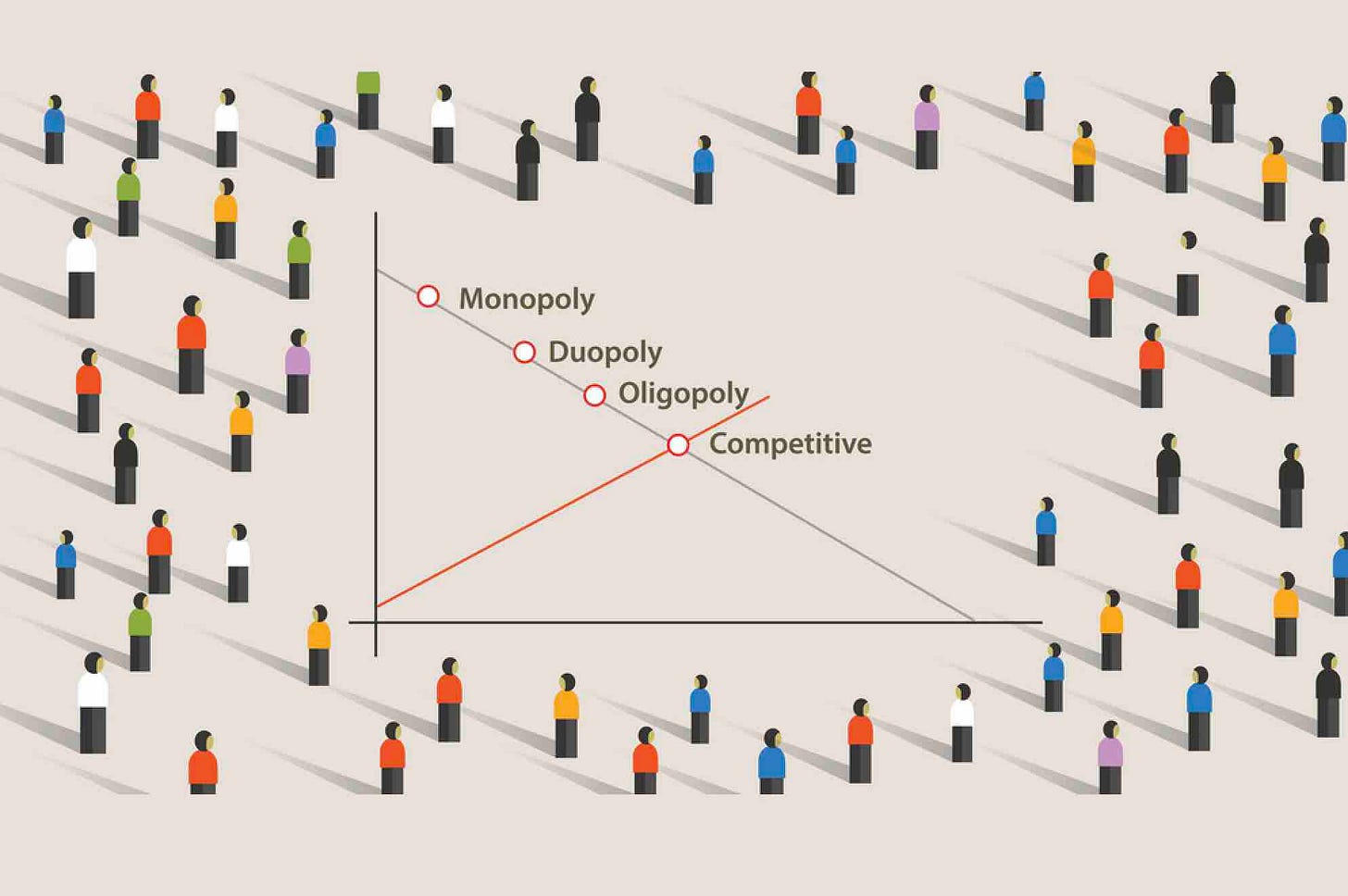Short the Duopoly. Bet on Innovation.
How 2024 could see a new political party sweep into power for a generation.
Americans claim to prize innovation and choice. Our nation's businesses are chest-thumpingly proud of the choices they create, both for the 330 million people here at home and for billions more around the world. U.S. businesses spend hundreds of billions on research & development every year to invent still more choices. Apple went on an R&D spending spree when it was 90 days from bankruptcy in 1997 and turned it all around.
So why do we tolerate the stale offerings of a duopoly in our politics? The $16B industry of politics (<—watch this now) hasn't changed substantially in 150 years. As Katherine Gehl and Michael Porter detail in The Politics Industry (2020), that's by design. The industry benefits its dominant players, the Democrats and Republicans.
Voters know they're not getting their money's worth. November exit polling by Fox (!) found widespread public support for government-run healthcare (70%), green and renewable energy (68%), and other policies. Yet the duopoly shows no real interest in voter preferences. Their real customers are large donors, including corporations. Between big-dollar donations and gerrymandering, Democrats and Republicans can largely ignore the electorate and still get paid.
Opportunity for Political Entrepreneurs
This resistance to big structural change has created an opportunity for political entrepreneurs. Last week's Gallup poll story found that demand for a viable new political party is at a record high. Is it really inconceivable that some innovative upstart might supply it?
FiveThirtyEight doesn't think it will happen. In "Why a Trump-Led Third Party Is Unlikely", the author recites the usual litany of reasons that a third party can't win, and concludes that it's unlikely. That conventional wisdom regarding new political parties misses something: The national mood. Notions of surface unity aside, people are angry, and have been for decades. That anger has surfaced as populism, and it's not going away.
The good news is that the R&D needed to turn populist anger into productive civic engagement has already been completed and is free at the point of use. Beyond new political parties, innovations like ranked-choice voting and direct democracy are a reality in a growing number of cities and states.
Picturing a New Party's Path to Power
It's tough to imagine someone without a D or an R next to their name in the White House, so let's chart one potential path: An upstart party adopts a populist platform, foreswears corporate donations, and runs a few candidates for Congress next year. Lo and behold, one or more of them wins. The political firmament shakes. Some elected officials, frustrated with the limitations of their party's agenda, change their affiliation to the new party. The new caucus now holds enough seats to swing votes, and it's not even 2023 yet. The new party holds substantive, compelling conventions, debates, and presidential candidate primaries. By the time the presidential debates roll around, their candidate is polling at 15% or higher, qualifying them for the 2024 presidential debate.
If a viable new party's candidate gets on the debate stage in 2024, it's over. The duopoly is unequipped to respond to a candidate whose agenda is driven by an issue-centered platform instead of political expedience.
Turning Non-Voters Into Citizen Stakeholders
The focus on voter preferences misses an additional critical element of the upcoming shift in power: Previously steadfast non-voters. Tens of millions of people don't vote, mainly because they feel disenfranchised. Their lives don't materially change regardless of who's in office, so why should they care? If a new party turns the politically homeless into voters, it could be in power for a generation.
Conventional wisdom salesmen will dismiss new parties until they win elections at the national level next year. Then they'll really dismiss the upstarts in 2024. They'll be wrong. Americans crave choice, they're angry, and they're tired of being told no.
Of possible interest: Pick a Party. Any Party.





Note: 50-state ballot access takes a solid four years. I don't know where every third-party ballot campaign stands, but at this point, 2024 is...unlikely.
Of possible interest: Pick a Party. Any Party.
https://jamesbelcher.substack.com/p/pick-a-party-any-party/comments